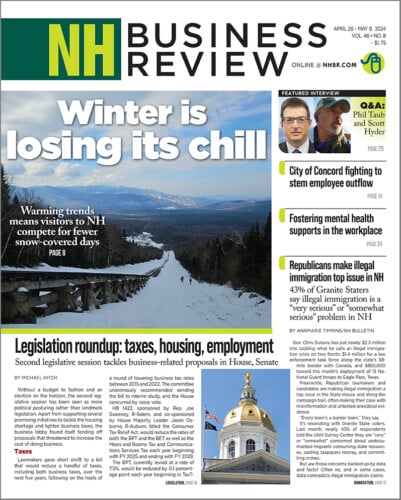Retirement planning (before it’s too late)
It’s never too early to think about it

Thousands of baby boomers are retiring every day. Many of them did not plan for retirement sufficiently. In that light, those in the generations behind them should avoid that mistake and start thinking about retirement now, before it is too late.
Financial (how much will I need?) and lifestyle (where/how do I want to live?) considerations are important, and the following considerations should go into everyone’s planning.
Social Security
It is not enough, but it is a foundation of a financial plan. A basic understanding of how Social Security works is important to finances. Social Security benefits are based on lifetime earnings — your highest 35 years of earning, not the most recent 35 years.
• Benefits can be increased by large amounts by delaying the age at which benefits commence. Eligible workers can begin receiving retirement benefits as early as age 62, but it will be less than if they waited until full retirement age of 66+. Benefit amounts will increase 8 percent per year for those who wait to receive benefits, up to age 70.
• If people continue working and are receiving retirement benefits before full retirement age, benefits will decrease if income exceeds a certain earning threshold.
• Eligibility for Social Security may benefit others in the family. Spouses and children of eligible people may qualify for their own benefits.
• A deceased spouse’s or ex-spouse’s earnings can be the basis for increased benefits or early benefits, if the couple was married for at least 10 years, or if someone is divorced and has an ex-spouse to whom they were married that long. Important planning tools are available at socialsecurity.gov, where users can obtain an estimate of projected benefits and create a “my Social Security account.”
Will you live in a different state when you retire?
Some people plan to move to another state upon retirement to be closer to family or to experience milder winter weather. However, doing so often requires more than just planning for a change in wardrobe. Different states have different costs of living, taxes during life and estate taxes, all of which should be understood well before picking a place to move.
Health considerations
Many people require additional assistance with routine tasks, such as housekeeping, lawn maintenance, snow removal and general mobility, as they get older. Where you live affects how available such services are and how fast medical assistance is coming.
Various options include in-home care, assisted living facilities or continuing care retirement communities. Knowing the cost of these services is important when planning retirement budgets. For those with limited assets, Medicaid may help with payment for residential care, but again, knowing the rules and planning for them, is essential. Financial and legal advisors can help people understand the rules and concepts, well in advance of retirement dates.
Your estate plan
Everyone should have a will, an advance healthcare directive and a power of attorney, and many also need a revocable trust. If moving to another state is part of the retirement plan, some or all of these documents may need to be revised to comply with the laws of the new state.
For example, if someone lives in New Hampshire and moves to a state that has an estate tax, that person may need to revise the estate plan to minimize or eliminate the estate taxes in the new state. Also, powers of attorney and healthcare directives can vary from state to state.
Generally, current documents will be valid in the new state, but they should be reviewed by local counsel to ensure there will not be any problems in the event they are needed. Even if not moving to a different state, retirement is a good time to review estate plans to make sure nothing has changed in family circumstances, or in the law, that would necessitate any changes.
All of these considerations set forth above are important. None of them exist in a vacuum. Basic to all of them is setting a retirement budget and having sufficient assets to fund whatever retirement plan is selected.
People are living well into their nineties, and often are retiring in their mid-60s, so plans have to consider 25 or more years in retirement. There are many options in saving for retirement and many reputable advisors to help. The key to having resources available is to have a plan and stick to it, over time, on a disciplined basis. The difference between the increase in investment value over 40 years as compared to five or 10 years is startling, and instructive, so it is never too early to start preparing for and thinking about retirement!
Attorney Madeline C. Hutchings is an associate at the law firm of Sheehan Phinney. Attorney Michael P. Panebianco is of counsel to the firm.












